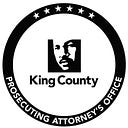Putting Survivors FIRST
This blog post is cross posted from the Center for Court Innovation National Technical Assistance Bulletin, and was authored by Doris O’Neal, Director of Gender-Based Violence Specialized Services at the YWCA Seattle.
Survivors FIRST (Facilitating Interventions and Resources for Survivors of Trauma) is a partnership between the YWCA of Seattle King County and the King County Prosecuting Attorney’s Office (KCPAO) that identifies justice-involved survivors of gender based violence and connects them to culturally specific services at the YWCA Seattle King County.
Our program supports the needs of Black/African American and women of color survivor-defendants and victims of abuse who have been accused of a crime. The vast majority of women in jails and prisons were abused before imprisonment, and almost all incarcerated women experienced domestic violence or sexual abuse in their childhood. We aim to help underserved communities to identify and address the unmet needs of criminalized survivors. By providing survivors of color culturally appropriate domestic violence and intimate partner violence services, our program helps reduce the racial disproportionality of survivors of gender-based violence in the criminal legal system.
The program began when the YWCA aimed to confront the rampant inequality in the criminal justice system towards Black/African American and women of color survivor defendants. Survivor defendants, when finding themselves charged with a crime, often as a result of their abusive relationship, are blatantly discriminated against when seeking help, re-traumatized, oftentimes humiliated in front of their children, and automatically assumed to be the aggressor due to their race. Instead of receiving support and services, survivors are incarcerated and forced to navigate the criminal justice system on their own as defendants. This isolation from resources often leads to pressure to plead guilty at earlier stages of the case to try to leave jail as quickly as possible, without realizing the implications. Any length of incarceration can lead to loss of the survivor’s employment, housing, custody of children, and her dignity.
We have a saying, “When the cuff goes on, life is never the same.” Countless survivors are going to prison, trying to survive prison, and trying to survive even as they leave prison.
In our unique partnership with the King County Prosecutor’s Office, we work closely with prosecutors to collaborate with our program, to identify cases that fit this situation and to analyze history. Does this survivor have a history of being abused? Have they been assaulted by a partner or family member in the past? At that point, once that pattern is identified, the survivor is referred to the YWCA for participation in the program. Across the country, we see that there are drug courts, batterer intervention programs, mental health courts, and other resources, but we lack in supportive services for survivor defendants that are furthest from opportunity.
The prosecutor’s office receives referrals from law enforcement and they then take a second look to determine victimization of the survivor defendant and to decide whether the case will be dismissed or declined. Then, a referral is made to the YWCA Survivors FIRST Program. A broader diversion program is planned for more serious cases. As we work with the survivor, we link them with resources that will help them meet a variety of needs that are neglected, such as housing, safety planning, rental and utilities assistance, legal services, support groups and counseling, job readiness programs, transportation, and childcare costs. We also provide culturally specific personal care items, for women who need assistance maintaining their physical appearance.
Thanks to funding from the Washington State legislature, the program is expanding to encompass more survivor-defendants and more eligible cases. The program recognizes that abusive relationships and the trauma they create can cause survivors to face criminal charges that are not domestic violence-related; the partnership with the KCPAO is opening up to any legally recognized survivor who is facing a misdemeanor or nonviolent felony and who is a person of color or a person furthest from opportunity.
Giving survivors a culturally responsive, safe space to receive resources, support, and compassion from advocates that look like them, can dramatically alter the outcomes in criminal cases. Deep inequalities take place in a criminal justice system that constantly re-traumatizes black and brown survivors who do not fit the image of the “typical victim.” By providing survivors with a caring support system of people who want to see them succeed and treat them with the dignity they deserve, we can try to break the cycle of abuse in our communities.
Questions? Contact survivorsfirst@kingcounty.gov or visit ywcaworks.org.
